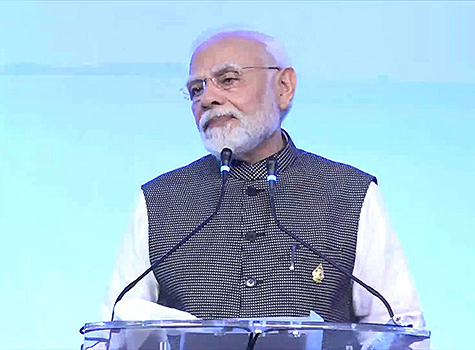By Rupa Pereira

Crossroads can be of varying degrees of complexity. In simplest terms, it’s a junction where the road ahead looks like quite different from the one we have traveled on and has more than one turn. As motorists, we’re trained to handle crossroads depending on if we know where we’re headed. If not, we circle around, take a detour and figure out the best direction we want to take.
Let’s apply this metaphor to life events. The ones worth celebrating: birth, weddings, milestone birthdays, new jobs, promotion, new home, new relationship or public recognition. We’re full of vitality and excited about the road ahead. How about the ones that leave us less enthused? Death, disability, separation, loss of a loved one, loss of job, health-scare, financial crunch, relocation or marital strife – the list goes on.
As I browse through recent flood of anonymous posts on private Facebook forums seeking to be heard while pouring out their emotional and financial insecurities, it made me wonder if crossroads hit women harder than men.
Let’s look at some statistics. Women outlive men. While men’s life expectancy is 82, women’s average life expectancy is 86. These extra years as a survivor lead to extended income needs during their lifetimes. Gender stereotypes often inhibit women from taking a proactive role in managing their household finances, leaving them more vulnerable in times of crisis.
In a typical household, women pause their career to raise a family, nurture their children and when they’re ready to re-enter the workforce, their earning potential regresses or their skills are outdated. Gender pay gap results in moms earning 70 cents for every $1 paid to dads. When you look at earnings over 15-year periods, the wage gap is even wider. Women make just 49 percent of what men do on average, due to career breaks.
Juggling household and work duties accompanied with emotions of guilt, self-judgement and exhaustion is a common sentiment shared by working moms.
A stay-at-home parent, generally 3 out of every 4 it is a woman, relies on her spouse for financial security and when that foundation starts to crumble, they find themselves at a crossroad, more so if children are involved. Personally, I’ve seen this played out too often in many families, including my parents’ household. It has personally informed my career choices.
Women can educate and inform themselves even if they relegate major financial decisions to their partner. The more we know, the more we can prepare for any unforeseen event, rather than it catching us unawares.
As a financial advisor, my 7-step advice to clients at crossroads is outlined as follows:
1. Let the emotions settle, so the mind can think straight and clear. One’s reflection is only visible through clear water not when it’s murky and unsettled. Avoid making major life decisions or money decisions when you’re wrestling with conflicting emotions. Did I mention that deep breaths are critical at this point?
2. Understand your family’s finances – What are your sources of income? What are your fixed and variable monthly expenses? What is necessary expenses vs discretionary? What is your household spend averaging over three months? What are your outstanding debt payments? Can some payments or deposits be deferred? Do you have an emergency cushion to cover six months of household expenses?
3. Assess your marketability for current employment opportunities. It often takes some upskilling and networking to re-establish professional connections so as to reenter the workforce. Community college, online MOOCs (Massive Open Online Courses) such as Coursera.org, Udacity.com are great learning platforms that cost little to nothing.
4. Take stock of financial accounts in your household. Bank accounts and CDs offer liquidity, i.e., immediate access to your funds. These are your emergency funds and meant for such situations. Next is your brokerage accounts or funds held with Custodians. Certain retirement accounts allow for early distribution due to death, disability, unemployment, paying for first-home, medical expenses or college expenses. Important to note is also the titling of all the financial accounts – are they in Joint tenancy or they Sole owners. Who are the beneficiaries of these accounts?
5. Review all your insurance needs – health, life, auto, disability and home. While paying a tiny premium for an event that seems unlikely may feel tedious, it’s in such moments that insurance comes in handy.
6. Gather important documents – Government issued documents, i.e., visas, passports, driver’s license, bank account statements, insurance policies, auto and home deeds, passwords for online accounts, and maintain a copy in secure location.
7. Lastly, don’t hesitate to seek help from professionals – counselors, therapists, accountants, financial advisors or legal assistance. It’s overwhelming to navigate a crossroad all by oneself especially if the road ahead is uncertain. These experts can help position you to move forward in a direction best suited for you.
Women tend to look out for their families’ well-being, often at their own expense. This comes at a huge cost – to their confidence level and their financial independence. It actually serves women well if they model assertiveness and preparedness to their children, so, they in turn can learn how to navigate their own crossroads later in life.
Rupa Pereira is the owner and lead financial advisor at FWJ Planning, an investment advisory and planning firm registered in NC. As an enrolled agent, she’s also authorized by the IRS to represent her clients on tax-matters.
Contact: [email protected].



